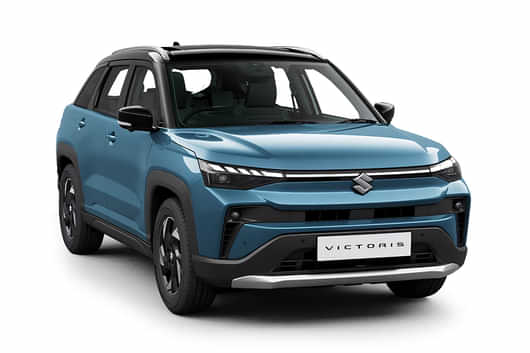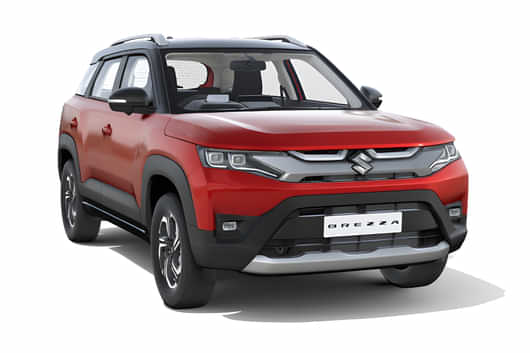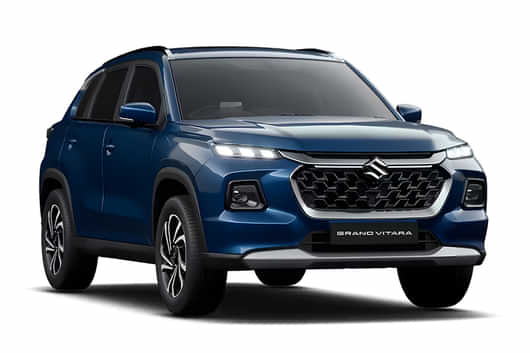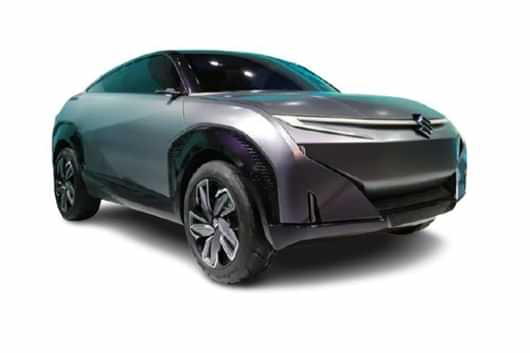
KEY HIGHLIGHTS
- Maruti Suzuki slashes e-Vitara production targets.
- Rare earth shortage disrupts EV component supply.
- Production cut by 69% for e-Vitara.
- Aims for 67,000 EVs by March 2026.
- Market share drops to 41% amid competition.
India's largest carmaker, Maruti Suzuki, has dramatically slashed its near-term production targets for its debut electric vehicle, the e-Vitara, pointing to a major supply chain disruption that's impacting the global auto industry. The automaker has revised its initial plans downward by nearly two-thirds, citing a shortage of critical materials essential for EV components. Check out more details below and make sure you join our 91Wheels WhatsApp Community to stay updated on the latest automotive news.
Read more: Tata Harrier EV Adventure Vs Mahindra BE 6 Pack One Above: Detailed Comparo!
What's Behind the Cutback?
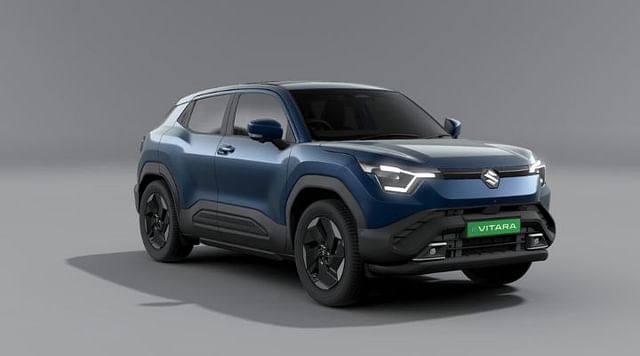
The key reason for this production cut is a shortage of rare earth elements, crucial for the manufacturing of EV motors, especially permanent magnets used in electric drivetrains. This supply bottleneck has been linked to export restrictions imposed by China, which has long held dominance over the global rare earths supply chain. These curbs have sent ripples across the automotive sector, and India is now facing the brunt of delayed approvals for material shipments.
New vs Old Targets

Originally, Maruti Suzuki had aimed to produce around 26,500 e-Vitaras between April and September. However, revised projections bring that figure down to just 8,200 units for the same period - a reduction of nearly 69%. This shift in plans indicates the scale of disruption manufacturers are facing amid the tightening grip on rare earth exports.
Still on Track for Annual Goal - But It Won't Be Easy

Despite the immediate production challenges, Maruti Suzuki remains optimistic about meeting its annual EV output target of 67,000 units by March 2026. The company now plans to significantly ramp up production in the second half of the fiscal year, with an updated target of nearly 58,700 e-Vitaras between October 2025 and March 2026 - up from its earlier plan of around 40,400 units for that period.
This means Maruti will have to maintain a daily production rate of roughly 440 units at its peak to compensate for the first-half shortfall.
e-Vitara: A Strategic Launch at a Critical Time

Unveiled earlier this year with much fanfare, the e-Vitara represents Maruti's foray into the electric vehicle segment - a space currently dominated by Tata Motors and Mahindra & Mahindra. The EV rollout aligns with the Indian government's broader ambition to have 30% of all car sales electric by 2030, a steep climb from the current share of about 2.5%.
Yet, the road ahead appears bumpy. Not only has Maruti delayed opening bookings for the e-Vitara, but its relatively late entry into the EV game - especially with global giants like Tesla expected to enter the Indian market soon - could pose additional hurdles in capturing consumer attention.
Impact on Global Strategy and Market Presence

India is not just a key market for Maruti Suzuki - it's also a major production base for its parent company, Suzuki Motor Corporation. A substantial portion of the e-Vitaras manufactured here are expected to be exported to major international markets like Europe and Japan by mid-2025. Any delay or disruption in Indian production will likely have implications on Suzuki's broader EV strategy as well.
Additionally, Suzuki has revised its long-term sales projections in India, scaling down its goal from 3 million to 2.5 million units by March 2031. The company has also cut back its planned EV launch lineup from six to four models, indicating a recalibration in response to intense domestic competition and supply challenges.
Market Share Pressure and Competitive Landscape

Maruti Suzuki has seen its market share in the passenger vehicle segment dip to 41%, down from 51% in March 2020. Competitors like Tata and Mahindra have surged ahead in the EV space, offering compelling SUVs loaded with features. Maruti's struggle to play catch-up in this fast-evolving market could weigh heavily on its dominance if it fails to scale its EV operations quickly.
Read more: Upgrade to Grand Vitara With Maruti's New Finance Scheme: Check Details
Verdict
Maruti Suzuki's significant production cut for the e-Vitara underscores how geopolitical tensions and raw material dependencies can influence even the most robust automotive plans. As India aims for a green mobility future, the real test for Maruti will be not just in catching up with rivals, but in building a resilient and sustainable EV supply chain - one that isn't at the mercy of external shocks.











